CPHN
February 25, 2025
UW, WSU study shows WA residents struggling to pay for one particular monthly expense
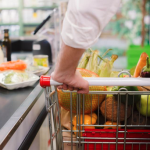
This article by the Bellingham Herald highlights findings from the fifth edition of the Washington State Food Security Survey released on Feb. 13, revealing a potential rise in food insecurity in Washington.
Grocery prices are a top financial worry, WA residents say

The Seattle Times looks at the growing high cost of food for Washington households, citing a state-wide survey conducted by UW Food Systems researchers called WAFOOD. FSNH faculty member Marie Spiker is quoted, “Of all the indicators that we have of how are households doing financially, food insecurity is a really important one, because it…
February 14, 2025
The growing struggle to afford groceries in Washington State
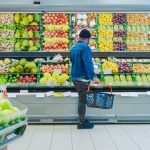
Groceries were the most common expense reported as hard to afford in the past month, followed by housing, according to the latest WAFOOD survey. Rising food prices and the expiration of pandemic-era assistance programs have intensified economic pressures on households statewide.
December 11, 2024
Mayor Harrell Releases Updated “Food Action Plan” to Guide City Policies and Programs, Increase Food Security in Seattle

Yona Sipos, core faculty in the Food Systems, Nutrition, and Health program is quoted in this recent post by the City of Seattle Mayor’s office, remarking, “The recently updated plan provides an impressive vision of how we can all pursue equity, sustainability, and resilience for our City and region. Food and food systems can truly…
June 10, 2024
Jennifer Otten elected president of Agriculture, Food, and Human Values Society

University of Washington faculty member Jennifer Otten has been elected the incoming president of the Agriculture, Food & Human Values Society (AFHVS), a professional organization which provides an international forum to engage in the cross-disciplinary study of food, agriculture, and health, as well as an opportunity for examining the values that underlie various visions of…
March 22, 2024
Adam Drewnowski named 2024 Wilbur Olin Atwater Memorial Lecturer

The United States Department of Agriculture, Agricultural Research Service (ARS), has named Adam Drewnowski, professor of epidemiology at the University of Washington School of Public Health the 2024 Wilbur Olin Atwater Memorial Lecturer. The Wiblur Olin Atwater Memorial Lecture is a forum for a presentation on a scientific topic, trend, issue, or policy of the lecturer’s…
October 11, 2023
New paper illustrates complexity of food systems data and how to close gaps
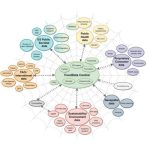
How do we support and transform sustainable food systems while maintaining and improving the nutritional status of the population? This question has become a global public health priority for international organizations, funders, academics, and policymakers. Because food systems data are so transdisciplinary and intersect many domains such as health, nutrition, economics, society, and environment, creating…
March 13, 2023
How WA food banks are handling a hunger cliff
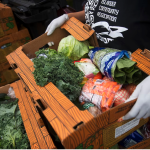
The state of food insecurity in Washington state, as changes in federal law that will end $95 million a month in food assistance. Recently published new data from a UW and WSU survey highlights that food insecurity was highest in households made up of people of color, families with children, and among renters.
Fund food insecurity response in WA — and demand national fix

Editorial featured in Seattle Times highlights legislative House bill 1784 which provides aencies charged with making sure those who are food insecure are asking the state for an emergency infusion of $28 million to help increase inventories at food banks and other agencies purchasing food and supplies, help manage storage facilities, food delivery and logistics,…
Survey shows food insecurity remains high in Washington state
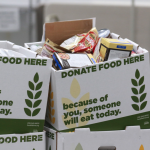
UW associate professor Jennifer Otten was interviewed in this video and article from KOMO News about the recent results from the WAFOOD survey the impacts on low income households, particularly those with children. How Washingtonians are copying with food and fuel costs is highlighted.
Previous page Next page